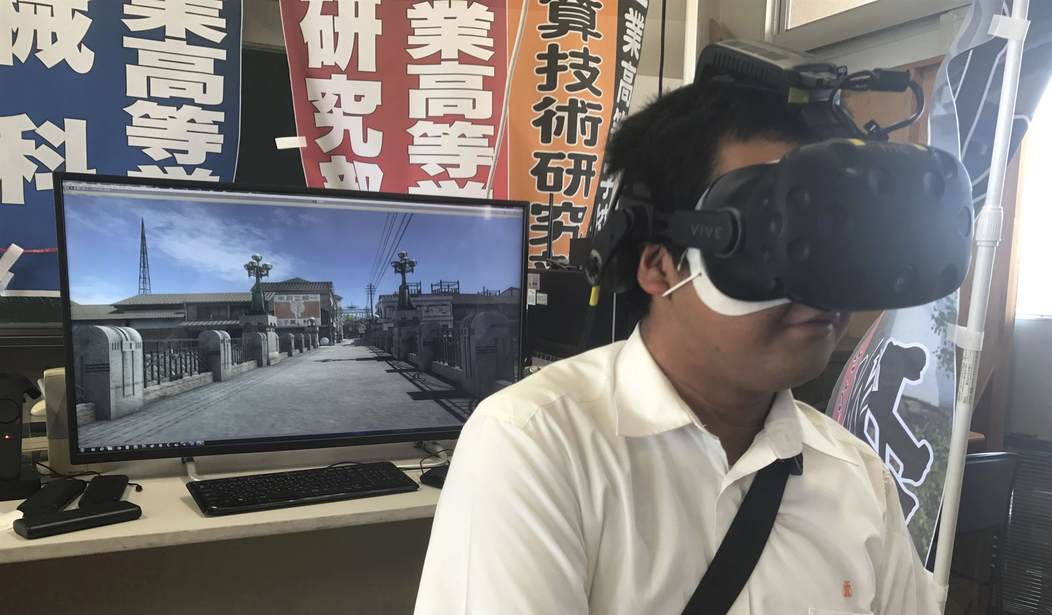Ever since Facebook whistleblower Frances Haugen came out of the shadows and began spilling the beans on Mark Zuckerberg, she’s been the belle of the ball, particularly in liberal circles. Her stories about how Facebook places its own interests ahead of those of its users probably shouldn’t have come as a surprise to anyone with even a passing knowledge of how capitalism works, but she’s also been confirming some of the worst fears of digital privacy advocates concerning what goes on behind Zuckerberg’s closed doors. This week she’s in Europe, testifying before United Nations lawmakers and urging harsher regulations for big tech companies, demanding that they do more to protect their customers from online harms of various sorts. But in an interview with the Associated Press, she was also sounding the alarm about Zuckerberg’s new Metaverse project. According to Haugen, the virtual world currently being developed is just a smokescreen to change the conversation about Facebook’s perceived abuses and it will act as a way for the company to suck even more of people’s personal information while making them into slaves living in an isolated, online world.
Facebook whistleblower Frances Haugen said the world should fear the impact of the metaverse that the social media giant has rebranded to focus on, saying the futuristic virtual reality world would force people to give up more of their personal information, be addicting and give the embattled company another monopoly in the online world.
In an interview with The Associated Press on Tuesday as she makes a series of appearances before European lawmakers drawing up rules for social media companies, Haugen said her former employer has rushed to prioritize the metaverse because “if you don’t like the conversation, you try to change the conversation.”
“Facebook should have a transparency plan for the metaverse before they start building all this stuff, because they’ve demonstrated with regard to Facebook that they can hide behind a wall, they keep making unforced errors, they keep making things that prioritize their own profits over our safety,” she said.
I can’t say that I find much fault with Haugen’s evaluation. Facebook is in business to make money and a large part of that model relies on mining the personal data of its users. As we all should have learned by now, when an online company is giving you some sort of service “for free,” you are the product. In order to completely immerse yourself in their brave new world, you will likely have to open up your entire digital existence to the probing tendrils of Zuckerberg’s algorithms. If there wasn’t a way for him to make money off of it he wouldn’t be doing it.
As for her charge of Zuckerberg trying to “change the conversation,” can anyone blame him? Looking at most of the headlines involving Facebook lately, I’d probably want to change the conversation too if the opportunity presented itself.
But is this new Metaverse actually dangerous, or at least more dangerous than Facebook and Twitter and Instagram already are? I would argue that the answer is definitely yes. We have already raised a new generation of young people who, in too many cases, live almost entirely online and are totally addicted to their screens. That’s unhealthy in a number of ways, both physical and psychological. Offering them the chance to drop a helmet on their heads and shut out the entire real world while they go exploring in some new fantasy realm seems like a recipe for disaster.
I’m going to share something uncomfortable with our readers here, though I don’t enjoy talking about it very much Back in the 90s, my wife and I signed up to try out a new online game that had come out called Everquest. We were both big fans of “sword and sorcery” novels and it looked very cool. It didn’t involve a VR helmet, of course, but it opened the door to a fantasy world filled with monsters and “non-player characters” as well as the avatars of thousands of other players.
I had no idea at the time, but the game was more addictive than crack. We both entered into raiding guilds that required you to put in hours every night in an effort to keep up with the required pace of advancement through the ranks. We wound up playing for almost two years, locked in front of our computer screens for more hours than I would care to count. Other obligations were often postponed or ignored and it definitely impacted our personal relationships in the real world. We finally quit, but it wasn’t easy.
It sounds to me as if the Metaverse could quickly turn into Everquest on steroids. And I don’t see how that is a formula for anything good to come out of it. I don’t begrudge Facebook the opportunity to turn a profit, but you can rest assured that you won’t be running into me inside the Metaverse world if you decide to sign up.








Join the conversation as a VIP Member